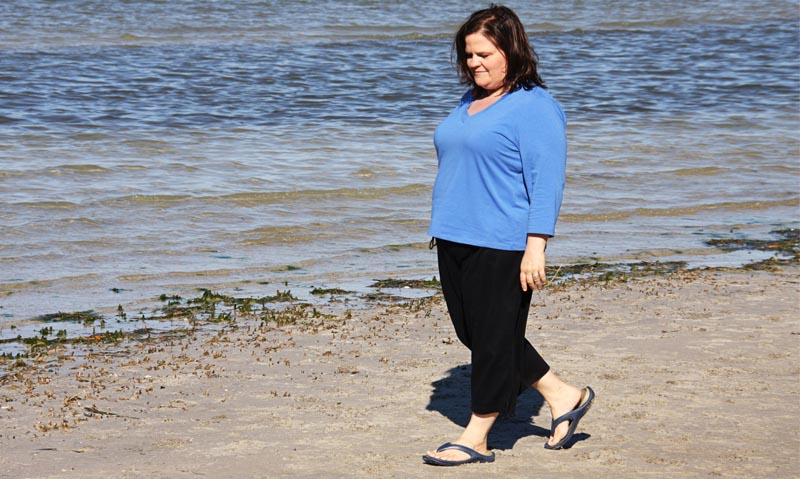AN Australian expert in adolescent obesity wants bariatric surgery to be made more widely available through the public health system for older teenagers struggling with obesity.
Professor Louise Baur, consultant paediatrician and director of weight management services at The Children’s Hospital Westmead in Sydney, said bariatric surgery shouldn’t just be available to people who can afford it.
“Severe obesity is more common in more socially disadvantaged people, [yet] the people who are most affected are less able to afford a treatment which may be truly life changing”, she said.
Professor Baur was commenting on a prospective, multisite observational study published in JAMA Paediatrics that found 92% of 242 severely obese adolescents aged 13-19 years (mean age 17 years) who underwent weight loss surgery did so without major complications. (1)
An accompanying editorial said that the peer-induced isolation often experienced by obese teens robbed them of a crucial phase in their social development. (2)
Professor Baur, who chaired a committee that developed guidelines for the provision of bariatric surgery to adolescents in Australia and New Zealand, told MJA InSight that psychosocial isolation was often the factor that drove obese adolescents to seek treatment. (3)
“Quality of life concerns and psychosocial distress are huge”, Professor Baur said. “Many of the complications associated with obesity — high blood pressure, insulin resistance, even type 2 diabetes — are initially hidden, but the issues of being stigmatised and bullied are very obvious and very real to the young person.”
She said bariatric surgery was not a panacea or a “set and forget” option and, for some patients, lifestyle management with medical management was effective. However, she said, in patients with established obesity, it was “really hard to turn it around”.
“We may as well help people deal with their very, very significant health problem”, she said, adding that highly skilled bariatric surgical teams needed to be linked with adolescent multidisciplinary service providers such as physicians, psychologists, dietitians and exercise physiologists.
“The work in adults suggests it’s hugely cost-effective to treat severely obese people with bariatric surgery — they are far less likely to go on to get type 2 diabetes and a whole raft of other complications, so the cost to the broader health system decreases.”
The JAMA Paediatrics study was one of four reports from the Longitudinal Assessment of Bariatric Surgery (LABS) published last week in JAMA publications.
In JAMA Surgery, researchers reported significant improvements in sexual functioning in a prospective cohort study of 106 women who had lost a mean 33.5% of their initial body weight 2 years after bariatric surgery. (4)
Professor Susan Davis, chair of Women’s Health at Monash University, told MJA InSight there was “absolutely” a role for bariatric surgery in improving the quality of life for severely obese women. She said the JAMA Surgery study reflected the findings of a 2011 US study of 54 obese women that found improvement in female sexual functioning 6 months after bariatric surgery. (5)
“Women’s sexual health is often ignored”, Professor Davis said. “Obviously, if you lose weight and there is an improvement in mental health and self-esteem then these must be having a marked impact on sexual functioning in women.”
She said the increases in the Female Sexual Function Index scores demonstrated in the JAMA Surgery study were driven by improvements in sexual satisfaction and desire.
“Desire is going to be very linked to body image — the women feel better about themselves”, she said, noting that the mental component improvement across the board, from vitality and social functioning to mental health.
However, Professor Davis said this study of women aged 25–60 years did not seem to take account of the women who would have gone through menopause in the course of the 2-year follow-up. The study did not state the concurrent medications women were taking, and hormonal levels may have been influenced by whether the women were taking the oral contraceptive pill or hormone replacement therapy.
Another study in JAMA examined the weight change and health outcomes 3 years after surgery in 2458 18–78-year-old participants with an initial median weight of 129 kg. The 1738 participants who had Roux-en-Y gastric bypass surgery lost a median 31.5% of their baseline weight at 3 years, while patients who had laparoscopic adjustable gastric banding had a baseline weight loss of 15.9% over the same period. (6)
An editorial commenting on the four reports said they were generally encouraging about bariatric surgery outcomes. (7)
1. JAMA Pediatr 2013; Online 4 November
2. JAMA Pediatr 2013; Online 4 November
3. NHMRC 2010; Recommendations for bariatric surgery in adolescents
4. JAMA Surg 2013; Online 4 November
5. Surg Obes Related Dis 2011; 7:1-7
6. JAMA 2013; Online 4 November
7. JAMA 2013; Online 4 November

 more_vert
more_vert
Academic Surgeons I know are moving away from supporting any form of Bariatric Surgery, and very much so from the non-reversible procedures, because of the potential complications.
I know, personally, two people who have been troubled with significant side-effects after having Gastric Banding performed.
In both cases the discomfort, reflux, and episodic vomiting, have persisted, though in reduced form, after all the fluid used to inflate the band was drained.
Both are considering further surgery to remove the bands. These are not neurotic people, but well-educated people with stable personalities.